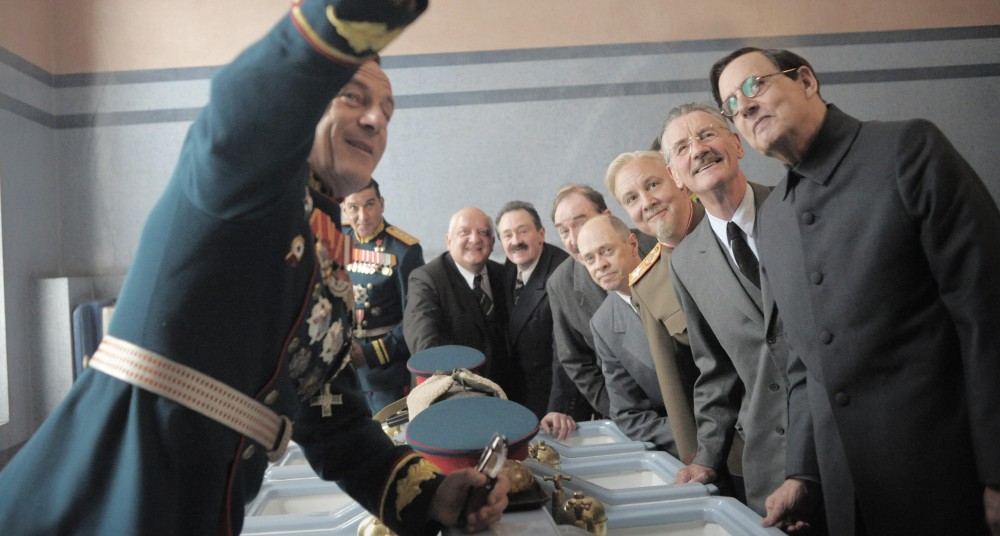Based on the graphic novel by Fabien Nury (writer) and Thierry Robin (artist), the film comedically chronicles the desperate bids for power made by the members of Stalin’s central committee in the wake of his death.
It’s important to note that aside from its setting, there is nothing Russian about this film. The style of its humor, the cinematography, the accents in which the characters speak— are all British (even if their script is eyeing the current American General Secretariat). And although it’s based on true events, present-day Russia was, understandably, none too flattered: The Russian Ministry of Culture banned it. In his time, and beyond it, Stalin was a symbol of national unity; he brought the USSR into the modern era, albeit violently. Many citizens mourned his death despite his oppressive regime — many still do.
While the cast consists of around a dozen significant characters, the power struggle falls mainly to the head of Stalin’s secret police, Lavrentiy Beria (Simon Russell Beale); Deputy General Secretary Georgy Malenkov (Jeffrey Tambor); and Moscow Party Head Nikita Khrushchev (Steve Buscemi).
Upon Stalin’s death, the committee begins to unravel as loyalties waver and dissolve completely. Without a single idol to worship and fear, the men who are now in full control of the state run around like power-hungry chickens with their heads cut off. It’s painfully funny when they try to look good doing it, and they didn’t even have Twitter.
Most ironically, they all possess comparable rank and therefore find themselves with the perfect grounds on which to build an actual communist society rather than an autocracy. But they’re too distracted by their infighting to bring about any major reform. You know, that thing that governments exist to do.
For the sake of the setting, Stalin (Adrian McLoughlin) doesn’t die right away. We get some scenes of him in all five-foot-five of his authoritarian glory (that’s an estimate — he would never let anyone know exactly how tall he really was, but he was kinda small). But hearing a man playing that character say, “You wanna go there?” in response to a query about a party member who’s been blacklisted and disposed of, or hearing him say, “I’m up for a cowboy movie. Who’s in my posse?” — these lines are absurd and a bit adorable, and apparently the latter quote is historically accurate: Stalin would keep his cabinet up to watch Westerns with him late into the night.
Throughout the film, the scenes in the background show the terrified faces of people being dragged from their homes, tortured and questioned or killed as the committee dawdles on the decorations for the fearless leader’s funeral. The scenery is draped and carpeted in red, dramatically and ornately adorned, and yet the film still does not feel opulent. This is probably because we’re so wrapped up in the petty battles of politicians who have lived in fear for so long, they can’t remember how to think for themselves. Despite the film’s comedy, this indisputable and depressing thread weaves itself tightly into the plot.
The film is undoubtedly funny. But as you’re watching, you may start to wonder why it makes you chortle — is it your intimate understanding of the conflicts of post-Stalinist Russia? Or is it that the frenzied bureaucratic incompetence feels too familiar for comfort?
Grade: A-








